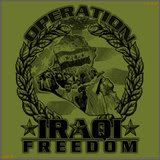UN Human Rights Council: Protecting Religion
World Evangelical Alliance Religious Liberty Commission (WEA RLC)
Special to ASSIST News Service
AUSTRALIA (ANS) -- On Friday 30 March, the UN Human Rights Council passed a non-binding resolution urging a global prohibition on the public "defamation" of religion, "particularly" (specifically) Islam.
The resolution was presented by Pakistan on behalf of the Organisation of Islamic Conference (OIC). On 12 April 2005 the UN Commission on Human Rights passed the OIC-sponsored resolution entitled "Combating Defamation of Religions" (Link 1). According to that resolution the Special Rapporteur on contemporary forms of racism, racial discrimination, xenophobia and related intolerance was to continue examining the situation of Muslims and Arab peoples in various parts of the world, monitor defamation of Islam, and report back to the Commission at its 62nd session (April 2006) and make recommendations to improve the situation.
It was phenomenally convenient that the violent "Cartoon Intifadas" of February 2006, which erupted some five months after the controversial Danish cartoons were originally published, occurred only weeks before the UNCHR was due to reconsider the OIC's resolution on "Combating Defamation of Religion". You don't have to be too cynical to wonder if the OIC and Arab league sponsored not only the resolution but the Cartoon Intifadas as well.
On 15 March 2006 the UN General Assembly voted overwhelmingly to replace the discredited UNCHR with a restructured, reformed and improved UN Human Rights Council. The OIC resolution was presented to UN Human Rights Council on 30 March 2007. The fact that the Council is supposed to be promoting the protection of humans and their fundamental rights, not religions, was simply a non-issue with the majority of the Council.
The Council has no power beyond drawing attention to rights issues, and the non-binding resolution passed by 24 votes to 14, with 9 abstentions.
SUMMARY OF RESOLUTION
The following is an excerpt from the media release of the Office of the UN High Commissioner for Human Rights (OHCHR). It would be fair to say that "defamation" in this context seems to mean any negative critique, as opposed to the dictionary definition: "To damage the reputation, character, or good name of by slander or libel". (The American Heritage Dictionary of the English Language)
--------------------------------------------------------------------------------
Action on Resolution on Combating Defamation of Religions
http://www.ohchr.org/english/press/hrc/index.htm
In a resolution (A/HRC/4/L.12) on Combating defamation of religions, adopted by a vote of 24 in favour, 14 against, and nine abstentions, as orally amended, the Council expresses deep concern at attempts to identify Islam with terrorism, violence and human rights violations; notes with deep concern the intensification of the campaign of defamation of religions, and the ethnic and religious profiling of Muslim minorities, in the aftermath of the tragic events of 11 September 2001; urges States to take resolute action to prohibit the dissemination including through political institutions and organizations of racist and xenophobic ideas and material aimed at any religion or its followers that constitute incitement to racial and religious hatred, hostility or violence; also urges States to provide adequate protection against acts of hatred, discrimination, intimidation and coercion resulting from defamation of religions, to take all possible measures to promote tolerance and respect for all religions and their value systems and to complement legal systems with intellectual and moral strategies to combat religious hatred and intolerance; further urges all States to ensure that all public officials, including members of law enforcement bodies, the military, civil servants and educators, in the course of their official duties, respect different religions and beliefs and do not discriminate against persons on the grounds of their religion or belief, and that any necessary and appropriate education or training is provided; invites the Special Rapporteur on contemporary forms of racism, racial discrimination, xenophobia and related intolerance to regularly report on all manifestations of defamation of religions and in particular on the serious implications of Islamophobia on the enjoyment of all rights; and requests the High Commissioner for Human Rights to report to the Human Rights Council on the implementation of this resolution at its sixth session.
The result of the vote was as follows:
In favour (24): Algeria, Azerbaijan, Bahrain, Bangladesh, Cameroon, China, Cuba, Djibouti, Gabon, Indonesia, Jordan, Malaysia, Mali, Mauritius, Mexico, Morocco, Pakistan, Philippines, Russian Federation, Saudi Arabia, Senegal, South Africa, Sri Lanka and Tunisia.
Against (14): Canada, Czech Republic, Finland, France, Germany, Guatemala, Japan, Netherlands, Poland, Republic of Korea, Romania, Switzerland, Ukraine and United Kingdom.
Abstentions (9): Argentina, Brazil, Ecuador, Ghana, India, Nigeria, Peru, Uruguay and Zambia.
--------------------------------------------------------------------------------
The media release from the OHCHR also provides summaries of the debate surrounding the presentation of the resolution.
Tehmina Janjua of Pakistan presented the resolution on behalf of the OIC, making it clear that it was Islam that was in particular need of protection. She asserted that profiling of Muslims constitutes racism. But this is false. "Muslim" is not a race. A "Muslim" is a person who adheres to Islam, which is religious and political but not racial. She complained that Muslims suffered from discrimination, but this is a totally different subject and has nothing to do with "defamation" of Islam. Even when Islam is "defamed" or criticised, that does not automatically lead to discrimination or persecution of Muslims. These human rights abuses arise primarily from poor governance and weak rule of law. In a robust liberal democracy with rule of law and a solid, moral, human rights base, ideas and religions can be criticised, scrutinised, publicly debated and even insensitively ridiculed without it inciting hatred of individuals, discrimination or persecution.
Birkitta Maria Siefker-Eberle of Germany, representing the European Union (EU), expressed the EU position that dialogue is the best way forward in the ongoing struggle to end intolerance and discrimination without limiting freedom of religion and expression. She noted that adherents of religions other Islam were also suffering, notably Jews and Christians. She noted that it was problematic to reconcile defamation with discrimination as the two are of a different nature. She noted that various international covenants and declarations already forbid discrimination on the grounds of religious belief and she recommended that the Council remain focused on the rights of individuals.
Several other representatives also objected that the resolution was against defamation of religion rather than discrimination or persecution of individuals on the grounds of religious belief. Another objection was that there was no role envisaged for the Special Rapporteur on the rights to freedom of opinion and expression. Paul Meyer of Canada reiterated Canada's strong belief in freedom of expression and expressed concern that freedom of expression was not included in the text. He also expressed concern that it was a religion, rather then the adherents of a religion, that was to receive protection. There were also objections to the inappropriateness of equating "defamation" of religion with a manifestation of racism.
Various other state representatives objected to the "unbalanced" and "selective" nature of the resolution. Several states complained that their requests for the resolution to be amended so it could be more balanced and inclusive of religions other than Islam were not taken into consideration. Still most of these objectors failed to even consider the inappropriateness of the Council on Human Rights advocating the protection of a religion rather than human rights.
Japan voted against the resolution on the grounds that the resolution was not inclusive and did not insist that all religions should be fully respected and not subjected to negative labelling. Presumably Japan would not extend the privilege of respect and positive affirmation to the Aum Shinri Kyo (Aum Supreme Truth) Cult, a religion that through its violence and terrorism demonstrated that it is unworthy of respect, and fully worthy of negative labelling.
Elizabeth Kendal
rl-research@crossnet.org.au
Links
1) Human Rights Resolution 2005/3
"Combating Defamation of Religions"
http://ap.ohchr.org/documents/E/CHR/resolutions/E-CN_4-RES-2005-3.doc
THIS BLOG HAS MOVED
TO CHECK OUT OUR NEWEST VERSION PLEASE CLICK ON THE SIREN VOICE
OR SIMPLY COPY AND PASTE ONTO YOUR BROWSER HTTP://THESIRENVOICE.BLOGSPOT.COM
Thursday, January 10, 2008
U.N. PROTECTS ISLAM!
Subscribe to:
Post Comments (Atom)













































No comments:
Post a Comment